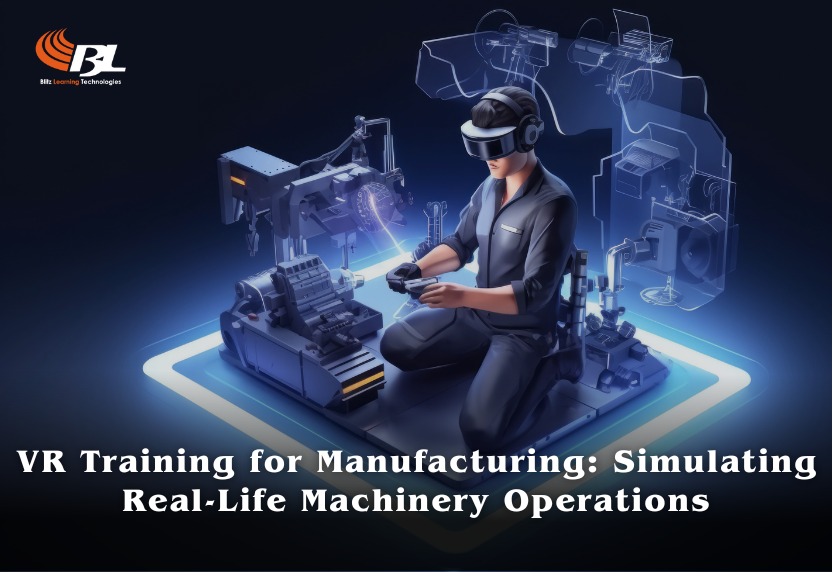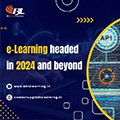
Blog
- Home
- Blog

17Jan
VR Training for Manufacturing: Simulating Real-Life Machinery Operations
Introduction
In the modern world of manufacturing, ensuring safety, efficiency, and productivity is paramount. Traditional training methods, such as on-the-job training, classroom lectures, or instructor-led sessions, often struggle to provide the hands-on experience necessary for mastering complex machinery operations. This is where Virtual Reality (VR) training comes into play. By simulating real-life machinery operations in a virtual environment, VR technology is revolutionizing the way workers are trained in the manufacturing industry.
The Evolution of VR in Manufacturing Training
Manufacturing is only one of the areas that has been impacted by virtual reality (VR). In the past, personnel frequently had to handle costly and potentially dangerous equipment in order to receive training on sophisticated gear. This required a lot of downtime for the machinery and presented safety hazards. Furthermore, there were few possibilities for practical instruction, particularly when working with specialized or uncommon equipment.
However, without the dangers of in-person training, businesses may use virtual reality (VR) training to replicate whole industrial settings and the functioning of machines. Trainees can practice operating machinery, handling tools, and responding to crises in a safe and regulated environment by immersing themselves in a simulated world utilizing VR headsets and controllers.
Benefits of VR Training for Machinery Operations
1. Safety First:
One of the most significant advantages of VR training is the enhanced safety it provides. In traditional training, workers may need to operate heavy machinery or deal with hazardous materials. This can lead to accidents if the trainee is not adequately prepared. VR training eliminates this risk by allowing workers to practice without any real-world consequences. They can make mistakes, learn from them, and improve their skills without putting themselves or others in danger.2. Cost-Effectiveness:
Training on real machinery often involves high costs related to equipment maintenance, downtime, and the use of trainers. Additionally, special machinery is sometimes costly and hard to access for training purposes. With VR simulations, these expenses can be reduced significantly, as companies don’t need to maintain real equipment for training. Trainees can access virtual versions of machinery anytime and from anywhere.3. Engagement and Retention:
VR training offers an immersive, hands-on experience that is far more engaging than traditional training methods. Research has shown that immersive training environments lead to higher engagement levels and better retention of information. Workers are more likely to remember operational procedures, safety protocols, and troubleshooting techniques when they’ve practiced them in a simulated environment.4. Efficiency and Speed:
VR training can be scaled quickly and effectively. Unlike traditional training that requires setting up real-world equipment, VR training modules can be deployed across multiple locations simultaneously. This ensures that employees, regardless of their physical location, can access the same high-quality training experience. Additionally, VR allows workers to train at their own pace, reinforcing learning through repetition and instant feedback.5. Realistic Simulation of Rare Scenarios:
In manufacturing, unexpected situations or rare machinery malfunctions can occur. Training employees to respond to these situations is essential, but it’s often impossible to simulate such events in real-life training without disrupting operations. VR, however, can replicate even the most unlikely scenarios, allowing employees to practice their response without any disruption to the actual production line.Conclusion
The implementation of VR training in manufacturing is a game-changer. By providing a safe, cost-effective, and highly engaging environment for learning, VR simulations offer a practical solution to the challenges of training workers on complex machinery. As technology continues to evolve, we can expect even more advanced and realistic training modules that will further enhance the effectiveness of workforce development in the manufacturing sector. By embracing VR training, companies can ensure that their employees are better prepared, more confident, and equipped to handle the challenges of the modern manufacturing world.

Neha Khare
About authorNeha Khare specializes in designing engaging and effective learning experiences tailored to learners' needs and also creates insightful blogs on corporate e-learning. She develops creative instructional methods, integrates multimedia, and aligns content with learning goals. Neha's innovative techniques and blog contributions significantly enhance the quality and impact of corporate training programs.



Leave a comments